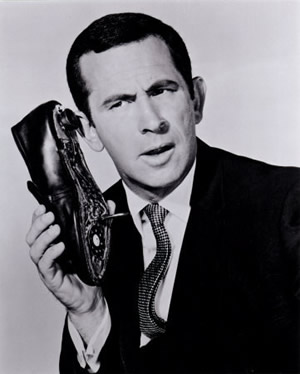The original requirement for S.M.A.R.T. objectives
I’ve been managing technical people since 1989 (currently at Conductor). It’s surprising how challenging and entertaining it remains. You would think by now I had it all figured out. After 20 years I should have written a book on the subject with a catchy title like “Who Moved My Submit Button?” or “The Seven Habits of ADD Engineers“.
But no, gross generalizations about managing people that can be effectively applied to real-world situations elude me. I’ve developed a lot of my own theories and tested out quite a few of the more popular ones on unsuspecting victims but when it comes to helping individual contributors succeed my mileage still varies. Like the seemly well thought out instructions for assembling IKEA furniture the map is not the territory.
My message to you here is that management is an art–not a science. It requires a lot of empathy, experience, and thickness of skin on both the part of the manager and the managed to get something useful out of the relationship. Servant Leadership, Situational Leadership, MBOs, and the OODA Loop all get chucked out the window when you’re sitting down with a real person at performance review time and really and truly want to help.
One particularly pernicious management tool is the so-called S.M.A.R.T objective. It’s a seductive idea that seems to make perfect sense. Like mom, apple pie, and Bruno, S.M.A.R.T objectives are one thing we can all agree on. After all who wants to write vague, assay-required, guesstimatable, unparalleled, eternal (V.A.G.U.E) objectives?
If management technique can be expressed as an actual word–beware! Did the author rig the technique to fit the word? If the English word for “smart” was spelled “snort” would objectives be Smart, Normalized, Obvious, Relevant, and Time-bound?
I have the suspicion that SMART objectives predate the Internet. Back in the days when the day had an end, distribution took time, and distance mattered, every activity of value had a physical manifestation. SMART objectives seem to want to be very “specific” things that actually get finished. In this Internet-age nothing is finished! The goal is to get it out before it is “done” so you can get comments and feedback. Is Microsoft Windows or WSJ.com ever “done”? Nope. No software or service is “Time-bound”. Heraclitus would have loved SaaS.
“Measurable” is good. It’s nice when you can tie a number to something. Take page hits and clicks. They seem like nice concrete numbers to measure success on the web. Talk to an engineer who knows something about HTTP, about fraud, and about packet loss and pages hits turn into very soft abstractions while every click becomes suspect. The fact is that measurable things require a judge. In today’s empowered self-managed work force there are no judges-just collaborators. Even your boss is a collaborator.
Don’t get me started with “attainable“. Even 20 years ago I realized that if goal is to be challenging it can’t be obviously attainable. Why bother? Don’t tell me a goal can be both challenging and attainable. That’s a Jedi Mind Trick! Like Jumbo Shrimp or Conservative Investor. (OK, an oxymoron.) I’m not paying you for the attainable. That’s already on the market.
The only tool in the SMART objective toolbox that survives critical thinking is “relevant”. After all you would not want to confuse the employee with irrelevant objectives like meet your deadlines while standing on your head. But that’s kind of insulting to the manager. I mean if you have to tell me to make my objective relevant you should also remind be to have them be rational or not stupid. I bet relevant is there because SMART has an R in it.
So how should you write up objectives? If it makes sense for the situation by all means write up SMART objectives! On the other hand, your employees (collaborators really) might benefit from VAUGE objectives. Especially if they are smarter than you… You did hire people smarter than you?
The ideas behind VAGUE objectives:
- Vague: You don’t know exactly what to do. The employee has to find out. You job is to point in the right direction not draw the line down the road. The answer is off-road.
- Assay-required: Don’t measure-experiment. It’s the only path to reliable knowledge.
- Guesstimatable: I don’t know if you can do it. I think you can but there is some risk of failure. This keeps you from feeling dead inside.
- Unparalleled: If goals should be realistic then nothing impossible would get done: Landing on the Moon, electing black men president, creating a popular phone without a keypad.
- Eternal: Nothing is ever finished. Keep refining, iterating, upgrading…
